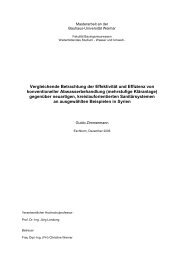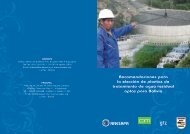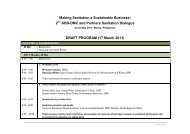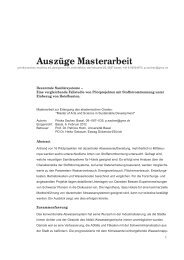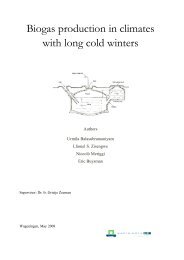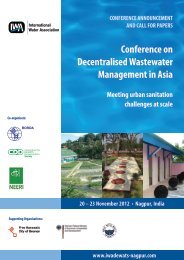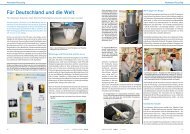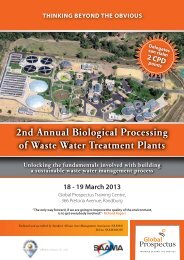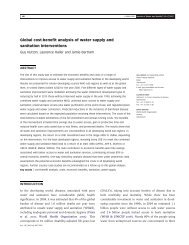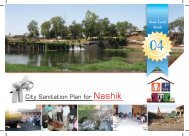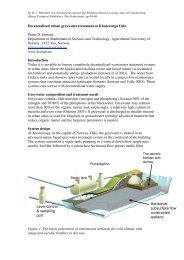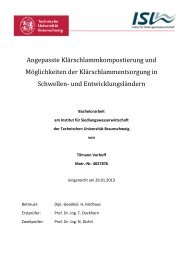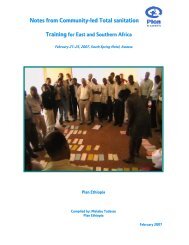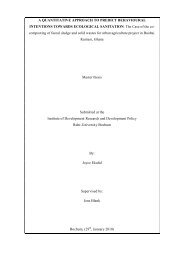MASTER'S THESIS - SuSanA
MASTER'S THESIS - SuSanA
MASTER'S THESIS - SuSanA
You also want an ePaper? Increase the reach of your titles
YUMPU automatically turns print PDFs into web optimized ePapers that Google loves.
6 Site visits and interviews with local stakeholders<br />
again by an expert hired by GIZ. It has to be checked carefully that no sanitation project for the sites is<br />
planned in the near future as this would mean that there is no need to investigate on it.<br />
The complete reports about the site visits and the interviews can be found in Appendix C. The village or site<br />
descriptions, that are the result of the visits and the interviews, do not include climatic or geological<br />
conditions as this was not considered as important for this kind of study. If sites will be selected for a<br />
sanitation project, geological and climate data of the area have to be gathered to adapt the technologies to<br />
it.<br />
6.2 Criteria for the selection of a site<br />
Criteria for the selection of appropriate sites where a small or medium size wastewater treatment plant can<br />
be implemented was discussed between GIZ junior expert Tina Eisele and the author in February 2012. The<br />
results as well as further ideas shall be presented at this point. Criteria will be divided into organisational,<br />
technical and additional criteria.<br />
Organisational criteria, that must be fullfilled:<br />
• Only project: There is no other sanitation project planned for the site at the moment or the next<br />
future. It has to be proofed that the site will not be connected to a central wastewater treatment<br />
plant located in the surrounding area.<br />
• Commitment: The commitment by mayor and inhabitants needs to be given and people want to<br />
improve the situation. People are willing to cooperate and to pay local contributions and the tariffs.<br />
Good contact between mayor and inhabitants isimportant.<br />
• Clear rsponsibility: It has to be clear if a water utility is covering the area or if the service will be<br />
under the commune/municipality. Responsibility for operation and maintenance has to be clarified<br />
to guarantee that the project will last when the donor leaves the site. Clear commitment to<br />
introduce tariffs and collect the bills to cover the costs is necessary.<br />
• Funds: Funds for construction have to be available.<br />
Technical criteria, that must or should be fullfilled:<br />
• Size: Preferred project size ranges between 200 and 2,000 PE.<br />
• Density: If canalisation is required, preferred villages are more or less dense, to keep costs for<br />
canalisation low.<br />
• Land availability: Land for the construction of a wastewater treatment plant must be available.<br />
• Slope: Land has little slope to collect and transport wastewater by gravity.<br />
• Exististance of sewer: A sewer system exists already and a wastewater treatment plant can be<br />
copnnected to it. This will help to keep the costs low as the most expensive part of a sanitation<br />
system will be the sewer system. If no sewer exists, a donor has to be found that covers the costs of<br />
a sewer system. No sewer system is neccessary if on-site treatment plants will be implemented.<br />
• Accessability: Road access for the construction vehicles is necessary. To ensure the possibility of<br />
using the plant for training purpose, the plant should be easy to access by road.<br />
75



